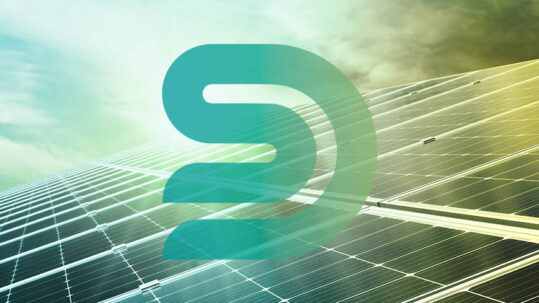
22 Feb Industrial self-consumption at zero cost
A recurring question my clients ask me is: What is going to happen with the price of electricity? As if I had a crystal ball. I have no idea how the price of electricity will evolve in Spain, let alone in the rest of Europe.
What I do tell everyone is this. The world is becoming electrified. We are seeing more and more electric cars, electric chargers at gas stations! Have we gone crazy? Most leading industries are changing their gas ovens for electric ovens. Everything points to the fact that electricity consumption is going to increase in the coming years. We will need more and more electricity. And we all know how the law of supply and demand works.

What can companies do to protect themselves? What are the risks of depending on gas, on the electricity market, on external factors that we do not control? We do have answers to these questions. We must diversify our energy sources. Can we reduce gas consumption in our industry? Can we minimize dependence on the electricity market?
- Industrial self-consumption projects: Your competitors are switching to industrial self-consumption for a simple reason. It doesn't cost them anything, I'll tell you later how, and they also ensure that in the future, they will minimize their risks. That is the main difference between a company that survives an energy crisis such as those experienced during the COVID or the war in Ukraine.
- Decarbonization projects: When we are tied to natural gas, we depend on a single resource of which Spain is not a producer. When we switch to electrification, we go from depending on a single resource, natural gas, to depending on a lot of different ways of producing electricity. And Spain produces 95% of the electricity it consumes. Sounds good, doesn't it?

Promise is a promise. Send me an email to info@sdsbysidasa and I will tell you how you can have a photovoltaic installation at zero cost. Industrial self-consumption is already making a difference!
What is Industrial Self-consumption? An SDS Approach by SIDASA
On the road to sustainability and energy efficiency, industrial self-consumption is emerging as a key strategy for companies seeking to optimize their energy consumption and reduce their environmental impact. SDS, a leader in the field of sustainability and energy innovation, offers its expertise to understand and adopt this transformative practice.
Definition of Industrial Self-consumption
Industrial self-consumption refers to a company's capacity to produce its own energy, using renewable sources such as solar photovoltaic, wind, hydroelectric or biomass, among others. This generated energy is used to cover part or all of the facility's energy needs, promoting self-sufficiency and reducing dependence on the traditional electricity grid.
Key Benefits
- Sustainability: By opting for renewable energy sources, companies not only reduce their carbon footprint, but also actively contribute to the fight against climate change.
- Cost Reduction: On-site power generation can mean a considerable reduction in long-term energy costs, amortizing the initial investment and protecting against volatile energy prices.
- Energy Autonomy: Self-consumption allows companies to have greater control over their energy supply, which translates into greater security and operational stability.
- Incentives and Subsidies: Various governments and international agencies offer incentives to promote industrial self-consumption, which can facilitate the adoption of these technologies.
The Role of SDS
At SDS, we understand the importance of industrial self-consumption in today's energy landscape. Our team of experts provides comprehensive services ranging from feasibility assessment and system design to implementation and maintenance of self-consumption facilities.
Our mission is to help companies navigate the complex energy ecosystem, ensuring that each self-consumption project is not only environmentally sustainable, but also economically viable. Through a customized approach, we assess the specific needs of each client, proposing tailor-made solutions that maximize the benefits of self-consumption.
With SDS, companies can expect expert support every step of the way on the road to energy transition, ensuring a greener and more economically sustainable future.
Conclusion
Industrial self-consumption, more than a trend, is a necessity in today's world that demands concrete actions to address climate change and move towards sustainable development. SDS is positioned as a strategic ally in this journey, offering the experience and knowledge necessary to make self-consumption a palpable and profitable reality for today's industries.
For more information on how we can support your company in implementing efficient and sustainable self-consumption strategies, please contact us via our contact form or send us an email to info@sdsbysidasa.com. Together, we can build a brighter energy future.



